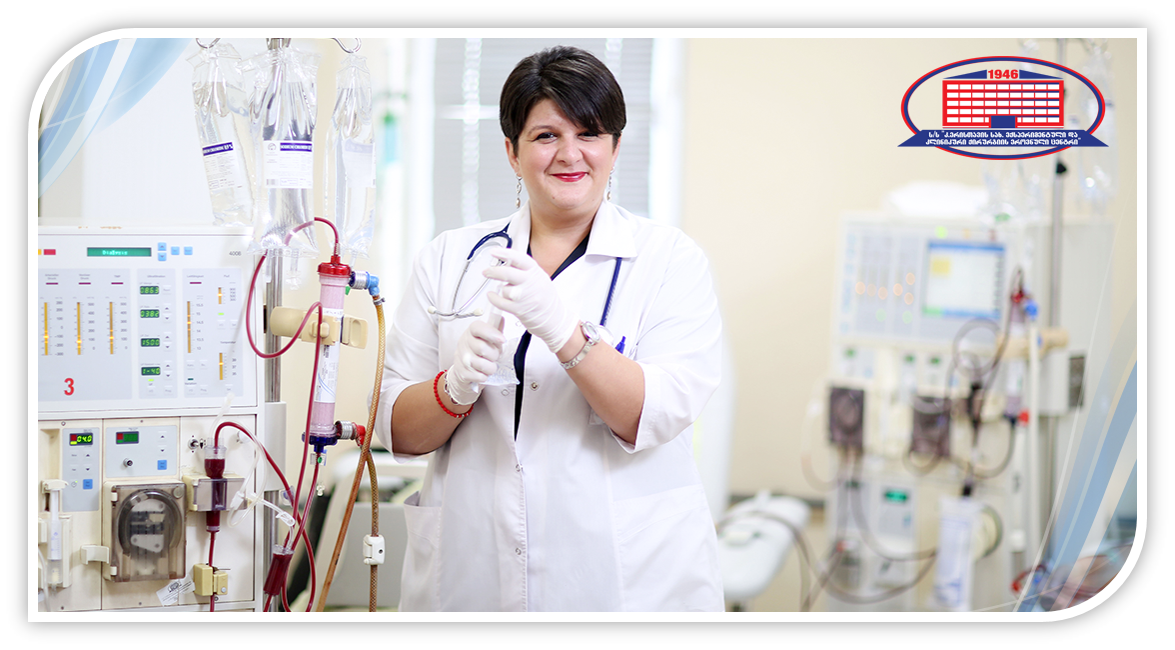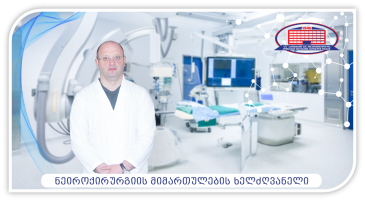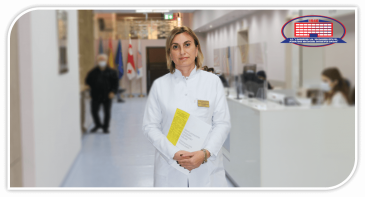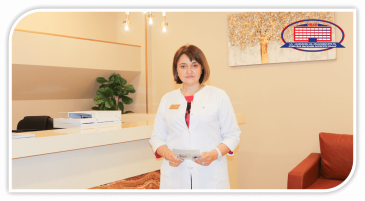
Our Respondent is Nino Shonia, Doctor-Nephrologist, Department of Transplantation and Hemodialysis, National Center of Surgery
What is your educational background, professional experience, and when did you join the National Center of Surgery?
-I received my medical degree from Tbilisi State Medical University, where I specialized in internal medicine and nephrology. I've been working at the National Center of Surgery for 24 years since graduating from university in 1997.
-When and why did you decide on your profession, and more precisely, the field in which you work?
-I come from a family of doctors, and to be honest, I never saw myself in any other field. I knew I wanted to be a doctor since I was a child.
-What does it mean to you to be a physician?
-It's difficult to convey this in a single statement, so I'll go over some events from the past. At the airport one day, I spotted a young person standing next to me, staring intently. “Aren't you Nino a doctor?” he questioned, turning to face me. At first sight, I had no idea. He also reminded me that a few years ago he was my critically ill patient, in a comatose state, on controlled breathing, and suffering from severe renal failure. We began the dialysis treatment with a critical testimony, and the outcome of that night's fight for life was that this young man was going to Germany for an international judo competition. I'll never forget that feeling. It is for such occasions that being a doctor is worthwhile.
-What do you regard to be the most difficult aspect of your job?
-When a person's life is on the line, you naturally bear a tremendous deal of responsibility to both the patient and his family members and relatives. Every doctor's goal is to fight and win for every minute of a serious patient's life. The most difficult hurdle, however, is the doctor's path to victory at the expense of knowledge and experience.
-What is the biggest desire and goal you want to achieve in your career?
-I am not satisfied, even though I am already a doctor with several years of expertise. The medical field is always growing, and I believe I should not miss out on this information, so this is my existing goal - each new day is a new step of self-development.
-What advice would you give to those who are now choosing a career?
-Those planning to become doctors should keep in mind that they will need to build or further develop the attributes of a fighting character, as they will face several challenges along the route. Young people who desire to pursue this career should be prepared to put in long hours and devotion. They have to keep learning and expanding their expertise. It is worth noting, that professionalism is established by factors other than knowledge. First of all, the doctor must admire the patient.
-How do you feel about the latest medical challenge, COVID 19?
-It is possible to assert that COVID-19, which is being fought by the global scientific community, is the greatest challenge of the 21st century. During this pandemic, Georgian doctors' passion, gallantry, and professionalism were put to the test, but there is still a long way to go.
-How do you envision the field in which you work evolving after ten years?
-I observe how patients are bound and dependent on the „kidney replacement” gadget every day because I work in the hemodialysis and transplant department. Today, kidney transplants cannot be performed in sufficient numbers. I expect that in ten years, transplantation will have progressed so far in Georgia, which will most likely be aided by the availability of cadaver donation, that we will have more transplanted and healed patients than device-dependent ones.









